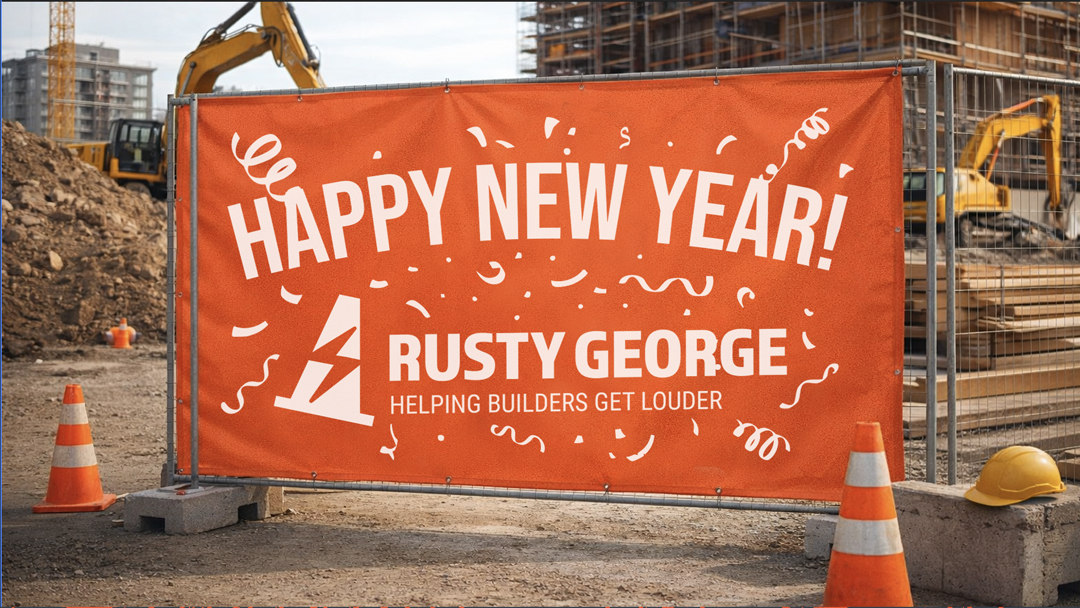WIAN? (What’s In A Name?)
The building industry’s downward trend of acronym monikers and how we can avoid this T9 trend

The building industry loves acronyms. Like the government, you can’t do business unless you understand the common industry lingo (“Send that RFI to the CMO of our GC and see if they can meet our GMP requirements…”). So it makes sense to also use initials for your company’s name. But as alphabet soup has saturated the industry over the last few decades, it might be time to rethink using initials as your company name.
Business owners across industries used to assume they appeared more qualified by listing all senior partners in their name. I remember the tense experience of trying to convince a room full of lawyers to shorten their names from Gordon, Thomas, Honeywell, Malanca, Peterson & Daheim to the simpler Gordon Thomas Honeywell. Leadership fought tooth and nail to keep it the way it was – even though a few of the partners named had been dead for 20 years.
Later, the trend started to shift to shortening the name to its initials. It made a lot of sense: It was easier to remember, friendlier, and frankly more trendy. BMW is far more attractive than Bavarian Motor Works. IBM is iconic. International Business Machines? Not so much. I, for one, have a fond memory of the silly pirate skit in front of Treasure Island in Vegas before they rebranded to the more modern T.I. Hotel & Casino – but what do I know?
For better or worse, the trend has commanded the industry ever since. But before you consider steering your moniker in that direction, the data we’re seeing as a marketing firm specializing in construction, subcontractors, and other building businesses suggests acronyms, initials, and abbreviated names are on the way out.
The first reason is three letter acronyms are getting too popular. The last three-letter domain was snatched up before 2000, and four and five-letter domains soon followed suit. Some three-letter domains are now worth millions of dollars, even if they were gibberish at the time of initial purchase. If you are starting up a new contractor business and are hoping to keep your website address short, don’t get your hopes up.
The good news is that the internet search isn’t as strict as it used to be. Remember when you entered a website address wrong and it shamed you with error notices? These days, the content and keywords throughout your site are more important than your construction website address. This allows you not to have to worry about a three-letter address. If your company is named AFE, shortened from Arnold Fishbine Enterprises, you might have better luck snagging up AFEConstruction.com, AFEbuilds.com, or other similar alternatives.
The second concern is memory retention. Because if prospective business partners can’t remember your name, how can they look you up? We even considered following the trend a few years ago by shortening our name from Rusty George Creative to RGC, which we already used to refer to ourselves internally. However, after doing a little industry research, found several competing companies in Tacoma and Seattle with surprisingly close names. Among them were VSG, GCI, J2G, and SMGI, to name a few.
Whether starting from scratch or planning a brand overhaul, your company name is a powerful tool for strengthening your brand and modernizing your marketing strategies. But we’ve found that using an acronym or initialism as a business name can dilute your branding, making it easier to forget. Why? Because acronyms aren’t meant to communicate a message – unless the acronym is so well-known audiences can easily associate it with the organization’s core mission.
If the acronym isn’t already well known, it will be confusing for customers, and if it’s too long, it will be difficult to remember. Acronyms are also easy to confuse with similarly named companies in both your own and other industries. If any or all of these things apply, your name won’t make sense to most people and you’ll probably get lost in the shuffle.
Do a little homework about brand name alternatives and ask yourself, "For all the benefits of simplification and modernization, will using initials dilute our brand? Will it cause people looking for our services to mistake us for our competitors? Will another sequence of letters reflect our innovative vision? Or will it make us sound like a replaceable vendor – or worse, a law firm?
If you’re already operating under an acronym, and are assessing whether it’s time to rebrand, consider the following questions. Is the acronym derived from a full name? Does the full name feature prominently in your brand messaging and across digital marketing materials? If not, it might be the right time to drop the acronym altogether and start using a name that better represents who you are.
When investing time and money into rebranding your business, you want to make sure your new name has staying power that extends beyond current trends. You also want to pick a name that’s unique enough that your company will sit at the top of the Google search results. If you have the luxury of reinventing your brand or starting one from scratch, is also better to focus less on the owner and more on the value your company provides.
Companies like Howard S. Wright, Lease Crutcher Lewis, and Absher will always be synonymous with their leadership. However, we're also seeing an influx of original construction company name examples, like Accrete (to adhere one material to another), Careage (specializing in health and senior care facilities), or our most memorable client yet: Fatboy Construction (named after the owner’s faithful hound). You have to agree those are more memorable than letters.
Still committed to using an acronym as your company name? If you’ve already established a strong brand and there’s only a small chance customers won’t immediately know what your name means, you’re probably safe. Just keep in mind that, while using an acronym might make your company's name seem more modern in the short term, it could date your firm if (or when) trends eventually change.
If you want to really make an impact, the best bet is to partner with a construction marketing firm that knows what works in the building industry long term. Otherwise, you’ll be rehashing the process in just a few years – and that ain’t cheap. Together, we can develop a new brand name that is memorable, aspirational, and unique.
MORE Insights
Unlock the secrets to transforming your construction company into a marketing powerhouse with Louder Builder.

2026 Starts Now. Five Reminders to Strengthen Your Year Ahead

Small Moves Now. Big Wins Next Year
SIGN UP FOR UPDATES
We will send you our latest insights from Louder Builder as they are released.
CONTACT US
Are you ready to begin your project today? Just have a few questions?
Either way, let’s talk.
